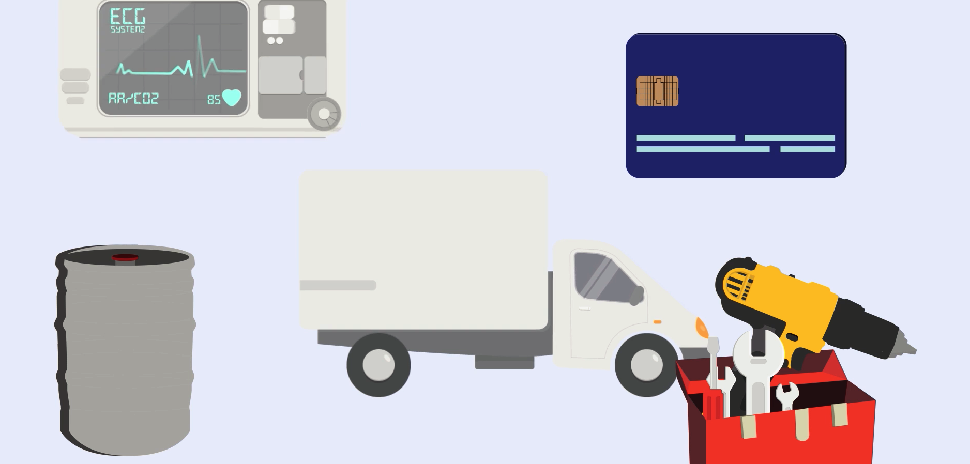In the business world, losing track of your assets can be a lot more complicated and expensive than someone asking, “Where are my keys?” Sometimes you need help organizing and maintaining a count of what you have. That’s where Richardson-based Polte Corp. comes in.
Polte, an innovator in accurate Cloud Location over Cellular (C-LoC) technology, provides a patented “alternative to GPS.” The platform works by leveraging 4G and 5G networks that are widely available worldwide, allowing manufacturers, distributors, and sellers of goods to more effectively track and manage millions of distributed assets.

Ed Chao, Polte CEO
“Today’s trackers are too expensive, batteries don’t last, and they’re just not reliable,” Polte CEO Ed Chao says. “Tomorrow’s trackers need to be super cheap, have batteries that last, and work everywhere—securely.”
And Polte’s methods appear to be working. This week, the LaaS provider (Location as a Service) raised $12.5 million in strategic funding from private investors. With the Series A-2 funding, Polte plans to focus on boosting the commercial and industrial applications of its platform.
According to Crunchbase, Polte has raised $18.5 million across it two rounds.
“This round of funding from committed and seasoned investors enables us to expand our team to deploy and deliver our affordable, accurate and secure location services,” Chao said in the funding announcement. “Businesses across all sectors and geographies know that location services are essential in enabling organizations to have unprecedented visibility into their assets and operations.”
The new funding will allow Polte to utilize its location offering with technology and channel partners. It said that early adopters will be illustrating a new set of C-LoC use cases, customer service innovations, and financial savings that come with Polte’s cloud-based location service.
Polte’s investors are committed to its recent growth, according to Ken Thompson, who’s chairman of the board at Polte. An investor in Polte since its inception, Thompson said the additional backers have confidence in the technology and the company that Chao and his team have built.
“There’s no question Polte is delivering on its promise to bring to market a disruptive location technology that will transform a range of industries,” he said.
Location trackers of tomorrow need to be more affordable and last longer
Pick an industry and Polte likely can provide a solution—the company has more than 75 patents and patents pending.
The location tracking platform works in supply chain, logistics, transportation, manufacturing, energy, automotive, and sharing economy sectors, where assets are constantly in motion and can be widely dispersed.
“Take the logistics industry, where over 22.8 billion pallets are in circulation in the U.S. at any given moment,” Chao said last year at the TechCrunch Disrupt 2018 in San Francisco. “But, 20 percent of those pallets go missing every single year, in addition to $30 billion worth of assets going missing.”
GPS and Wi-Fi currently are the most common location technologies, but according to a Polte video, GPS is expensive, drains batteries, and only works outdoors where there is a direct line of sight to satellites. That means it’s not always accurate and can be easily spoofed. As for Wi-F, it only works indoors and is limited to places that have a network. Wi-Fi also uses a lot of power and has limited privacy.
“Polte technology is less expensive to deploy at scale, an order of magnitude more accurate, and more secure than current approaches to location information,” Chao said.
Tracking an item that travels both indoors and outdoors requires the use of two or more technologies, meaning there’s more radios, battery power, and cost involved.
Polte classifies its platform as one that “disrupts the economics of the Internet of Things,” and is ready to solve real business challenges across a wide range of industries.
The solution is described as a highly accurate, cost-saving platform that requires minimal power consumption. Because it’s optimized for both 4G and 5G cellular signals, the tech can function both indoors and outdoors for more precise and secure asset tracking.
“The location market is huge and growing. By 2022, there’ll be 29 billion connected devices that are looking for location,” Chao said last year. “Market estimates have the outdoor location market together with the indoor location market worth $124 billion, growing at 30 percent every year.”
Alex Edwards contributed to this report.
![]()
Get on the list.
Dallas Innovates, every day.
Sign up to keep your eye on what’s new and next in Dallas-Fort Worth, every day.


































































